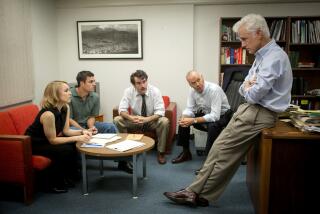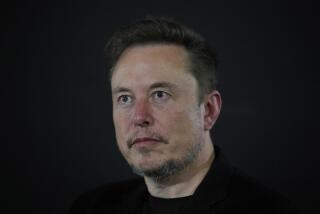TED pulls TEDxWestHollywood license over issue of “pseudoscience”
At the main TED conference a few weeks ago in Long Beach, the fifth and final one in that city, the organizers spent time on the opening day celebrating the remarkable influence and reach of this once-obscure technology and design conference. Among the highlights was TEDx, a program under which TED licenses its name to independent conference organizers to host their own events.
Since launching in 2008, more than 5,900 TEDx events have been held around the world, a remarkable number considering these events get no financial support from TED. But as was noted at the TED conference, this growth creates potential new risks to the TED brand and reputation.
Such a problem erupted this week when TED officials withdrew the license previously awarded to organizers of TEDxWestHollywood. TED officials felt that the conference theme (Brother, Can You Spare a Paradigm?) and a lineup of speakers that included people touting such things as the reality of ESP seemed to be promoting a kind of “pseudoscience.”
“We have rules about the presentation of science on the TEDx stage,” read an email from TED officials received by conference organizer Suzanne Taylor. “We disallow speakers who use the language of science to claim they have proven the truth of ideas that are speculative and which have failed to gain significant scientific acceptance.
“More than 2000 TEDx events will take place in the year ahead. If your program is allowed to proceed, it will truly damage other TEDx organizers’ ability to recruit scientists and other speakers.”
The withdrawal came just two weeks before the conference was scheduled to be held April 14 and after a year of planning. Supporters are predictably outraged.
“You can now add these speakers to the growing list of people that TED is using its influence to censor via withdrawing their support,” wrote Craig Weiler, who blogs about psychic ability topics at the Weiler Psi.
TED officials have denied the censorship charge, saying the event can still proceed, just not under the TED name. Still, the controversy goes to the heart of the risk TED faces with the growing popularity of TEDx events.
The official TED organization is relatively small, with only 100 or so employees, and doesn’t have the resources to vet the backgrounds of speakers at such events or delve too deeply into the substance of their planned talks.
Critics last year had already begun leveling charges that TED was promoting “pseudoscience” at both official and TEDx events by giving a voice to people whose work did not have strong credibility in scientific circles. The issue came to a head last year after a TEDx event in Spain that included talks on topics such as “Egyptian psychoaromatherapy.”
The controversy prompted TED to issue a public letter to TEDx organizers that included more thorough guidelines for considering talks that touched on scientific issues or used scientific language.
But TED, in that letter, notes the challenge facing lay people in identifying bad and dubious scientific claims: “There is no bright and shining line between pseudoscience and real science, and purveyors of false wisdom typically share their theories with as much sincerity and earnestness as legitimate researchers.”
Exactly where the line gets drawn is always bound to be the subject of dispute.
In the case of TEDxWestHollywood, TED officials seemed to have concerns about a handful of speakers, including Russell Targ, whose talk will be on “The Reality of ESP: A Physicist’s Proof of Psychic Abilities.”
Although TED officials did not cite specific speakers as being problematic, officials told TEDxWestHollywood organizers that despite long discussions over the format and content of the event, it still seemed to violate TED guidelines.
“We feel that the pseudoscience struggle is an important one. TED and TEDx cannot be platforms that give undo legitimacy to false evidence and selective logic — regardless of brilliant packaging,” TED officials wrote in an email to Taylor.
But in refusing to discuss specific objections to specific speakers, and provide any evidence that talks such as the one on ESP are not “real” science, Weiler says TED is in essence being anti-science itself.
“It’s basically an admission that the parent organization is not prepared to argue their case factually,” Weiler wrote. “As science is, at its most fundamental level, about the facts and details, it’s rather curious that they would make a case for being on the side of science, but avoid addressing the science.”
TED, meanwhile, has also discussed the move in a blog post on its website, and set up a forum for the TED community to discuss the decision.
“Withdrawing an existing license is not a decision we would ever make lightly; it has only happened once before. But the reasoning is clear in this case: The program planned for TEDxWestHollywood fell outside the boundaries of what’s permitted under a TEDx license,” TED officials wrote in the blog post.
In an email, Taylor said following the withdrawal of the license, the event lost its venue. The event was scheduled to be held at the new West Hollywood Library, which the city donated, a $5,600 in-kind value, Taylor said. In addition, the caterer that had planned to donate $10,000 worth of food backed out.
Taylor said she still plans to hold the event, and is searching for a new venue. In a note posted on the event’s website this week, she wrote:
“This program is too good not to be delivered and we are regrouping. The mailing list will be informed about what happened and what the new venue will be.”
Also:
TED conference is speaking to the masses — and drawing criticism
TED 2013: A look at TED by the numbers
TED 2013: Larry Brilliant reflects on impact of his TED Prize







